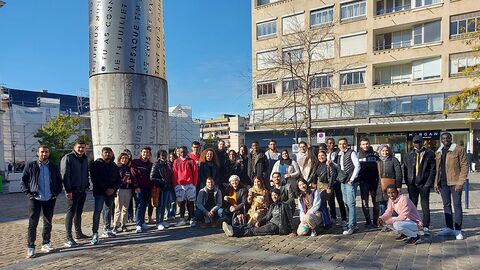
International strategy
The desire to make international openness a strong development focus and a priority for UPHF is part of a long tradition of exchanges with foreign university partners.
Building an international network
Participation in European higher education since its inception has been a major part of UPHF's cooperation : Erasmus+ student and teacher mobility, double degrees, research, ...
The geographical position of the university particularly favors cross-border collaboration with partners such as Belgium, Germany, the southern United Kingdom, Italy, Spain.
Parallel to this, privileged networks have historically developed with French-speaking North and West Africa as well as collaborations towards emerging countries (South East Asia, Latin America) where UPHF can support partner institutions but also strengthen its competencies in complementary training and research themes (international mobility, cotutelles, laboratory internships).
Strengthen the image of the institution
In addition to the objective of promoting student and staff (teacher-researchers, administrative staff) mobility, UPHF's international policy is articulated with the aim of:
- Strengthen the attractiveness of the university and consolidate an image of excellence internationally ;
- Structure, coordinate and mutualize all international actions in synergy.
Participation in the new Erasmus+ program confirms the University's commitment to its process of opening up to the international arena and organizing its institution to respond. The consolidation of sustainable partnership links with European and non-EU institutions is a priority, while putting them in perspective with the structuring and institutional strategy of the UPHF.
The institution's internationalization and modernization objectives are:
- an affirmation of its identity with its European and international partners ;
- an enhancement of the international through all levels and actors of the institution ;
- an institutionalization of individual collaborations and flows.
Facilitating access to mobility

This international strategy, and more specifically the valuing of international at all levels, will continue to respect the principles of non-discrimination, transparency and inclusion in the way it selects candidates for mobility (students and staff) as well as in the awarding of related grants.
UPHF is also committed to making access to mobility possible for individuals who are furthest from it.
This international institutional strategy enables UPHF, an institution of higher education, to be a driving force for job creation, economic growth and improved cohesion in its territory, which fits in with the goal of building a European education area.




